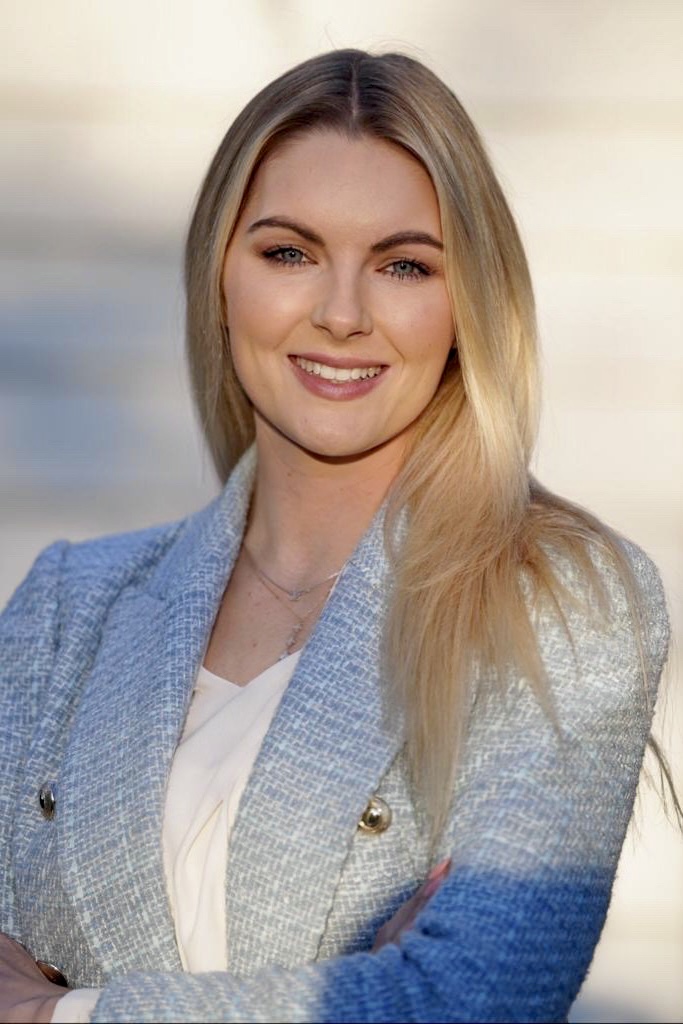
John Freund's Posts
3744 Articles

Legal Finance Firm Set to Reboot Industry with Multi-Million Pound Investment in AI-Tech.
It previously announced the creation of 10 new jobs in key areas including legal, auditing, finance and origination, after opening a new office in Weert, Netherlands. Aisling added: “I take immense pride in witnessing the remarkable growth of Nera Capital as it expands worldwide.
“In the face of a rapidly evolving world, our industry has often been considered slow to adapt in relative terms. We are determined to break free from that inertia and lead the charge towards meaningful change. By embracing cutting-edge AI technology, we have entered a transformative chapter for our firm. The fusion of innovation and data-driven insights empowers us to navigate legal landscapes with even greater efficiency, ensuring our partnered law firms receive the swift and insightful solutions they deserve which can hopefully speed up the justice process for those that need it.”
Nera Capital are expected to look at further expansion into new locations in the near future.
About Nera Capital
- Established in 2011, Nera Capital is a specialist funding provider to law firms.
- Provides Law Firm Lend funding across diverse claim portfolios in both the Consumer and Commercial sector.
- Headquartered in Dublin, the firm also has offices in Manchester and The Netherlands.
- www.neracapital.com

Zachary Segal Joins LCM as an Investment Manager

DELTA CAPITAL PARTNERS WELCOMES ACCOMPLISHED PRIVATE EQUITY FUND PROFESSIONAL AS CHIEF FINANCIAL OFFICER

DELTA CAPITAL PARTNERS WELCOMES ESTEEMED PRIVATE EQUITY AND ASSET MANAGEMENT PROFESSIONAL TO ITS BOARD OF ADVISORS
Analyzing the Potential Impact of Florida’s Litigation Funding Bill

Burford Capital Reports Record 2023 Results
CAT Continues to Send Revised Funding Agreements to the Court of Appeal
Delaware District Judge Rules in Favour of Woodsford Subsidiary in Dispute with Hosie Rice
High Court Judge Rules that Anonymous Funder’s Identity is Relevant in Webster v HMRC

Dane Lund Joins Juris Capital as Managing Director
Quantum Data Analysis Meets Litigation Finance and Investment

LegalPay Awarded the Best LegalTech Startup of the Year by Entrepreneur India at Tech and Innovation Summit 2024
LegalPay, India's leading litigation finance company, has been named the BEST LEGALTECH STARTUP OF THE YEAR by Entrepreneur India at the prestigious Tech and Innovation Summit 2024. This recognition underscores LegalPay's unwavering commitment to revolutionizing the legal finance landscape and empowering businesses with innovative solutions.
LegalPay tackles the chronic issue of delayed payments faced by businesses. Their groundbreaking financing solution, QuickSettle, offers a lifeline to thousands of businesses struggling with cash flow. QuickSettle provides immediate funding to creditors, allowing them to receive their dues upfront. Simultaneously, debtors benefit from flexible repayment plans, easing financial strain and facilitating a win-win outcome for all parties involved.
"In today's dynamic economic climate, access to flexible financing solutions is vital for businesses to thrive," says Mr. Kundan Shahi, Founder & CEO of LegalPay. "We are incredibly honored to be recognized by Entrepreneur India. This award is a testament to our steadfast dedication to pushing the boundaries of innovation in the legal finance industry. We remain committed to empowering businesses and fostering a culture of faster dispute resolution in India."
LegalPay’s innovation transcends traditional boundaries. By bridging the gap between creditors and debtors, QuickSettle fosters collaboration and trust, reducing the need for costly litigation. In today’s dynamic business landscape, access to working capital is paramount. QuickSettle liberates working capital, allowing businesses to focus on growth and expansion.
The recognition from Entrepreneur India serves as a testament to LegalPay's dedication to pushing the boundaries of innovation in the legal and financial technology sector. As businesses continue to seek efficient and sustainable solutions to recover their dues, LegalPay remains steadfast in its mission to empower businesses and drive positive change in the industry.
About LegalPay:
Founded in 2019 by Kundan Shahi, LegalPay has emerged as India's largest litigation funding company, currently managing over USD 400 Million worth of claims. Through innovative solutions like QuickSettle, LegalPay empowers businesses to navigate financial hurdles seamlessly and unlock their true potential.
Industry Reacts to UK Government’s Announcement of Legislation to Reverse PACCAR Ruling
$18 Million Settlement Agreed in Merivale Underpayment Class Action
Ontario Court Approves Funding Arrangements in Class Actions Targeting Canadian Banks
Proposed Litigation Funding Disclosure Rule Rejected by Supreme Court Of New Jersey’s Civil Practice Committee

Counsel Financial Announces $25M Equity Transaction and Launch of New Loan Servicing Business
Burford Capital Hires Judgement Enforcement and Foreign Asset Recovery Expert

Keller Postman UK merges with Lanier, Longstaff, Hedar & Roberts to form specialist collective redress law firm KP Law Limited
South American Countries File Briefs in Support of Argentina’s Appeal of $16 Billion Judgment
LitFin Hosts Inaugural LitFin Leap Conference
The Opportunities and Limitations of AI for Litigation Finance
Ministry of Justice Announces New Law to Protect Litigation Funding

LegalPay aims to double litigation funding AUM to $1B by end of 2024
Proposals for an ‘Ethically Sound And Financially Robust’ Future of Litigation Funding
A Funder’s Perspective on Climate Litigation
Burford Capital Exploring Argentina’s Currency Swap Line with China to Satisfy $16 Billion Judgement

Omni Bridgeway Releases Interim Financial Report
- US$485 million2 first close of Fund 4 and Fund 5 series II capital raise on improved cost coverage terms.
- €135 million first tranche of debt capital raised for our €300 million Fund 8, focused on global enforcement investments.
- Significant expansion of our capabilities in the UK, the world's second largest litigation finance market.
- Investment income of $235.7 million, including income yet to be recognised, with $50.1 million provisionally attributable to OBL.
- 12 full completions, 6 partial completions, and a secondary market transaction achieving an overall MOIC of 2.4x, and an IRR of 55%.
- US$21.5 million cash proceeds from the sale of a 25% interest in a portfolio of 15 intellectual property (IP) investments in Fund 4.
- $260 million of new investment commitments with 38% improved pricing on FY23.
- $182 million strong pipeline of new investment opportunities representing a further 29% of our commitments target for the year ending 30 June 2024.
- Possible investment completions with an estimated portfolio value (EPV) of $5.1 billion over the next 12 months (rolling period).
- Total cash and receivables of $291.2 million; OBL only cash and receivables of $122.4 million ($80.9 million in OBL balance sheet cash and $40.1 million of OBL share of cash and receivables within Funds), plus $60 million in undrawn debt.
- Total income of $135.8 million (including a net gain on deconsolidation of the Fund 4 IP portfolio) derived from diversified sources comprising litigation completions, a secondary market sale, management fees, and interest revenue.
- Group profit after tax (before non-controlling interests (NCI)) of $33.4 million (1H23: $30.1 million loss after tax); with $47.6 million loss attributable to OBL (the Group’s equity holders) and $81.0 million profit attributable to NCI.
- Employee expenses of $34.4 million decreased 12% due to team optimisation, a reduction in contractors and higher capitalised costs of investment managers.
- Corporate overheads of $9.0 million increased 4% due mainly to the amortisation of the Fund 8 insurance premium, notwithstanding significant reductions in other corporate overhead expenses.
- Carrying value of litigation investments of $654.7 million (30 June 2023: $596.7 million) across 285 funded litigation investments. Negative case developments including lower than anticipated income, extended duration and adverse milestones associated with a funded law firm portfolio have resulted in a $44.9 million reduction of the carrying value.


